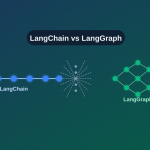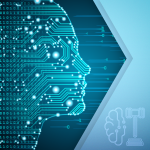Enterprises today are in dire need of AI adoption and data management, thanks to increased competitiveness and unprecedented demand for automation. As companies prepare to meet this demand with a structured approach towards data modernization, their success relies on a foundational alignment between data strategies, AI adoption initiatives, and the overarching goals and … [Read more...] about The AI-Driven Enterprise: Aligning Data Strategy with Business Goals
Artificial Intelligence
Learn about the latest developments in artificial intelligence and how it is transforming industries around the world. Our website offers insights and resources for understanding AI and its applications.
How to Develop an AI Strategy
There has been a lot of hype around AI in the past few years. But hype doesn't bring business value - AI strategy does.According to the recent McKinsey survey, 78% of organizations use AI in at least one business function, with most survey respondents reporting the use of AI in an average of three business functions. This marks a significant jump from 55% in 2023 but still … [Read more...] about How to Develop an AI Strategy
LangChain vs LangGraph: Which LLM Framework is Right for You?
It's no longer just tech giants testing Large Language Models; they're becoming the engine of everyday apps. From your new virtual assistant to document analysis tools, LLMs are changing the way businesses think about using language and data. The global LLM market is expected to explode from $6.4 billion in 2024 to $36.1 billion by 2030, a growth of 33.2% CAGR according to … [Read more...] about LangChain vs LangGraph: Which LLM Framework is Right for You?
Rethinking AI Data Partners in the Wake of Meta’s Stake in Scale AI
When working with data labeling platforms, AI companies often share sensitive data strategies and invest significant capital to develop and maintain a skilled annotation workforce. This involves training labelers on complex taxonomies, edge case handling, and domain-specific guidelines-efforts that are critical to building high-performance, fine-tuned AI models.However, the … [Read more...] about Rethinking AI Data Partners in the Wake of Meta’s Stake in Scale AI
Designing EU’AI’Act’Ready Support Bots Before the August’2025 Deadline
Key Takeaways Why It Matters With the EU'AI'Act entering its first high'risk enforcement phase on August'2,'2025, any organization deploying conversational AI in the European Economic Area must meet a sweeping set of requirements: pre'deployment risk assessments, continuous monitoring, robust audit trails, and human'override gates. VentureBeat readers will recall how … [Read more...] about Designing EU’AI’Act’Ready Support Bots Before the August’2025 Deadline
What is artificial intelligence (AI)?
AI refers to the development of computer systems that are able to perform tasks that normally require human intelligence, such as recognizing patterns, learning from experience, and problem-solving.
AI systems can be trained to perform these tasks through the use of algorithms and machine learning techniques, which allow them to analyze and interpret data and make decisions based on that analysis. AI has the potential to significantly improve the efficiency and accuracy of many tasks, and is being applied in a wide range of industries and applications.
How is artificial intelligence used?
AI is used in a variety of industries, including healthcare, finance, retail, and transportation, to improve efficiency and productivity.
For example, in healthcare, AI can be used to analyze medical images or electronic health records to identify patterns and make diagnoses, while in finance, it can be used to identify fraudulent activity or optimize investment strategies. In retail, AI can be used to personalize customer experiences or predict demand for products.
What are some examples of artificial intelligence?
Examples of AI include self-driving cars, language translation software, and virtual assistants like Apple’s Siri or Amazon’s Alexa.
Other examples include chatbots that can handle customer service inquiries, predictive analytics tools that can forecast future outcomes, and recommendation engines that can suggest products or content based on user preferences.
What are the potential risks and benefits of artificial intelligence?
AI has the potential to revolutionize industries and improve our daily lives, but it also raises ethical concerns and the risk of job displacement. One concern is the potential for AI systems to perpetuate or amplify biases present in the data used to train them, leading to unfair or discriminatory outcomes.
There is also the risk that AI could be used to automate tasks or make decisions that have negative consequences for humans.
On the other hand, the benefits of AI include improved efficiency and accuracy, the ability to process and analyze large amounts of data quickly, and the potential to tackle complex problems that are difficult for humans to solve.
How can I learn more about artificial intelligence?
Datafloq offers a wide range of AI articles. There are many resources available for learning about AI, including online courses, books, and industry events.
Some popular online courses include those offered by Coursera, edX, and Udacity. There are also many books on AI that provide a broad overview of the field or delve into specific topics, such as machine learning or natural language processing.
Attending industry events, such as conferences or meetups, can also be a great way to learn about AI and network with others in the field. It is important to stay up-to-date on the latest developments in the field, as AI is a rapidly evolving field with many new advances and applications emerging all the time.






